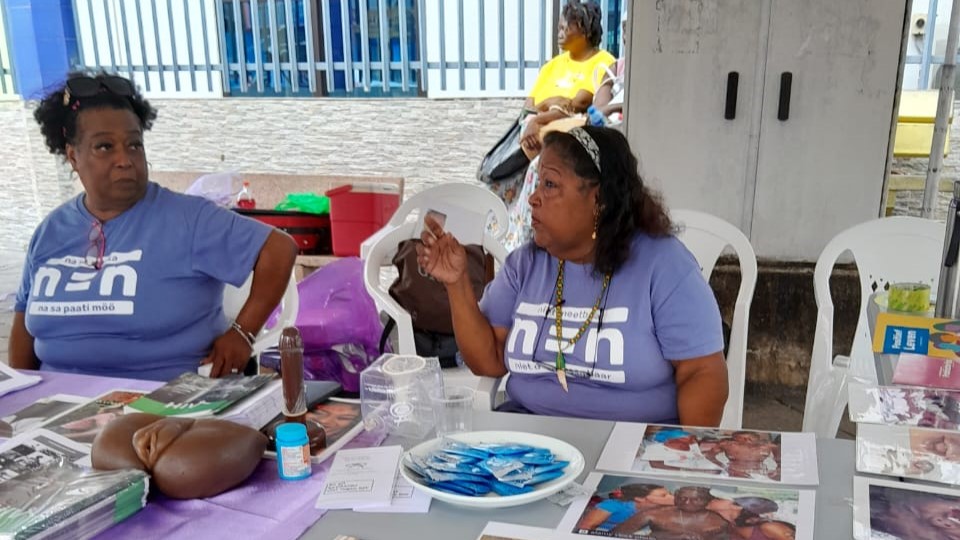Suriname has the highest number of HIV/AIDS infections in the region, according to Jolanda Verdies, a counselor at the Double Positive Foundation. She emphasizes that infections are high among both younger and older age groups, which is a cause for concern for the country. In addition to HIV/AIDS, other sexually transmitted infections (STIs) are also a growing problem in Suriname.
On December 1st, it is World AIDS Day, a day to remember those who have passed away from HIV/AIDS or are currently living with the virus. In connection with this, the Double Positive Foundation went to downtown Paramaribo to provide information about HIV/AIDS and other STIs.
“Sex is an essential part of life, which is why it is important to inform people about the risks and how they can protect themselves from STIs,” said Verdies. According to her, Suriname is a leader in the Caribbean in terms of HIV/AIDS infections.
In some families, two to three people are infected. This issue is not only present in Suriname, but is also visible worldwide. However, discussing HIV/AIDS remains a taboo in Suriname. “Many families do not talk about the dangers of HIV/AIDS. Even during our awareness day in the city center, some people tried to avoid us,” Verdies shared.
Risky behavior and awareness
Sexual behavior plays a significant role in the increase of HIV/AIDS. “Many people do not use condoms and engage in unprotected sex,” Verdies explained. She added that the spread of HIV/AIDS increased during the COVID-19 pandemic, partly due to lockdowns and a shortage of condoms. The behavior of foreigners who engage in unsafe practices with the local population also contributes to the spread. Verdies calls for more awareness and action to address this problem.
Testing and responsibility
Verdies, who has lived with HIV for 18 years, stresses the importance of regular testing and safe practices. She notes that some people get tested every three months but still engage in unprotected sex. “They are playing with their lives,” she warns.
She urges the community to become more aware of the risks and take responsibility for their health. “Get tested and know your status. Through ignorance, people make the wrong choices.”
Call for change
The counselor emphasizes that shame and discrimination surrounding HIV/AIDS must be overcome. “Sex is fun, but do it safely. Protect yourself and your partner,” Verdies concludes. She urges the community to be more careful with their sexual health and to refrain from judging others.




